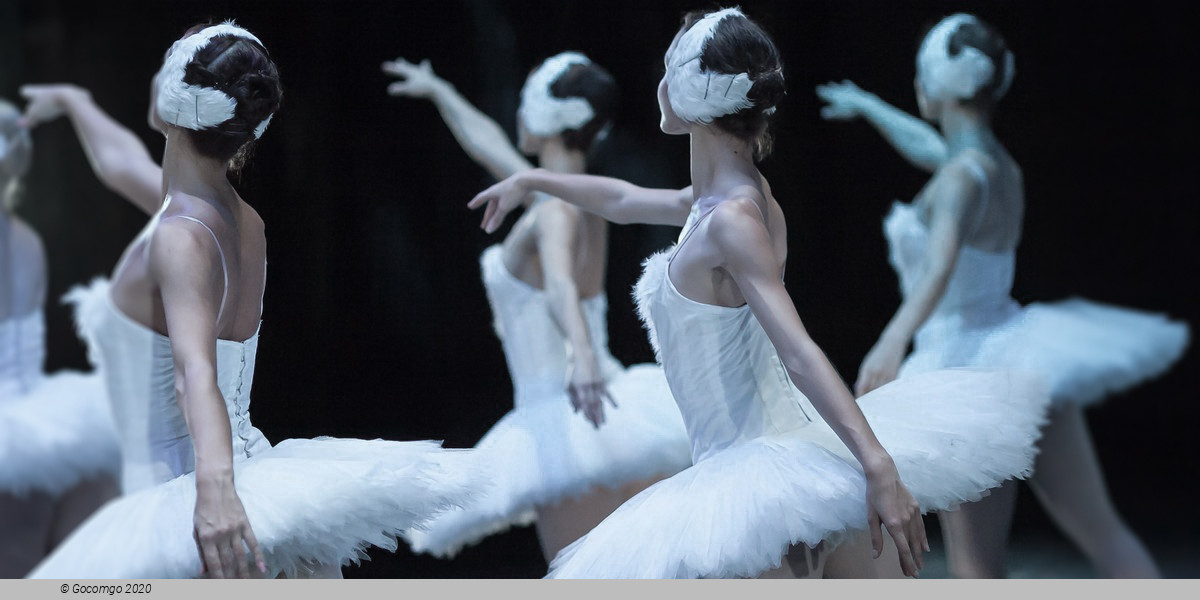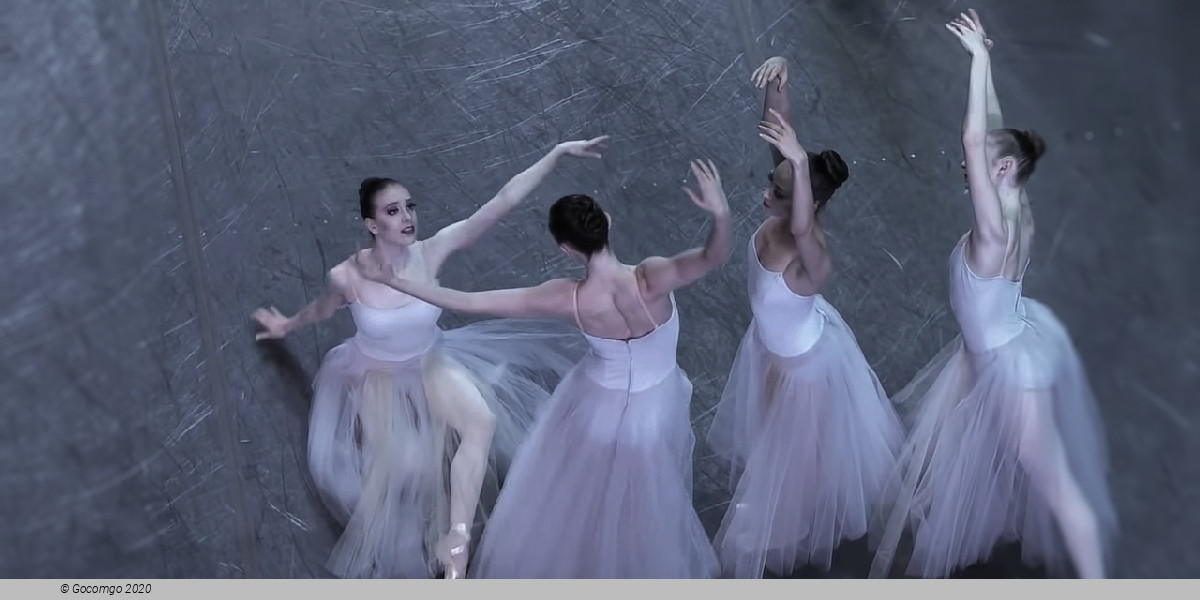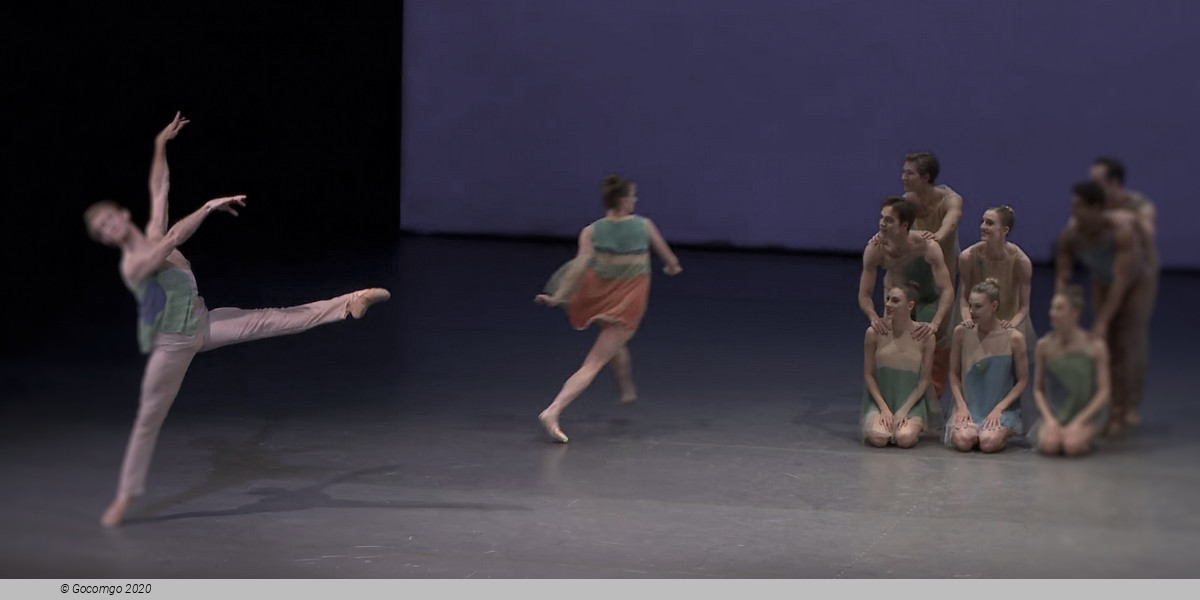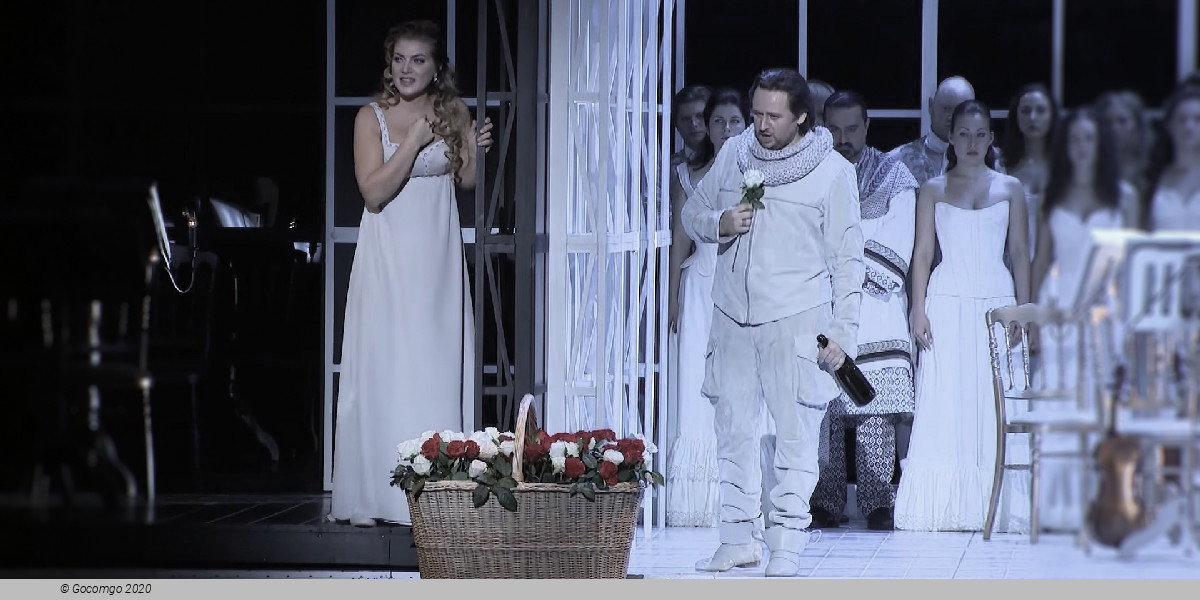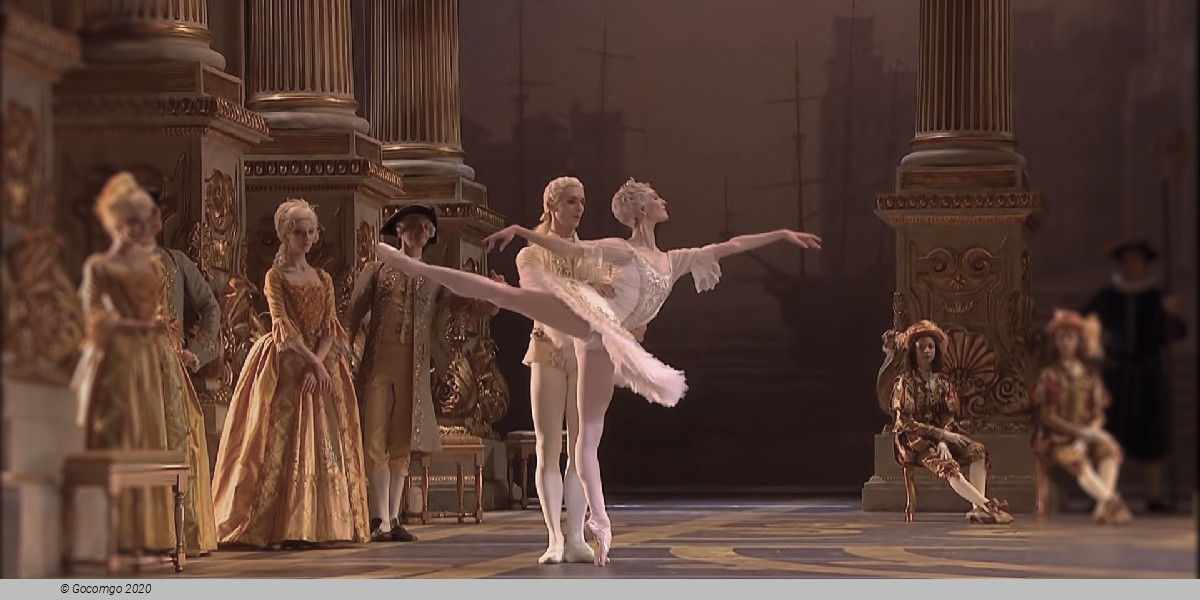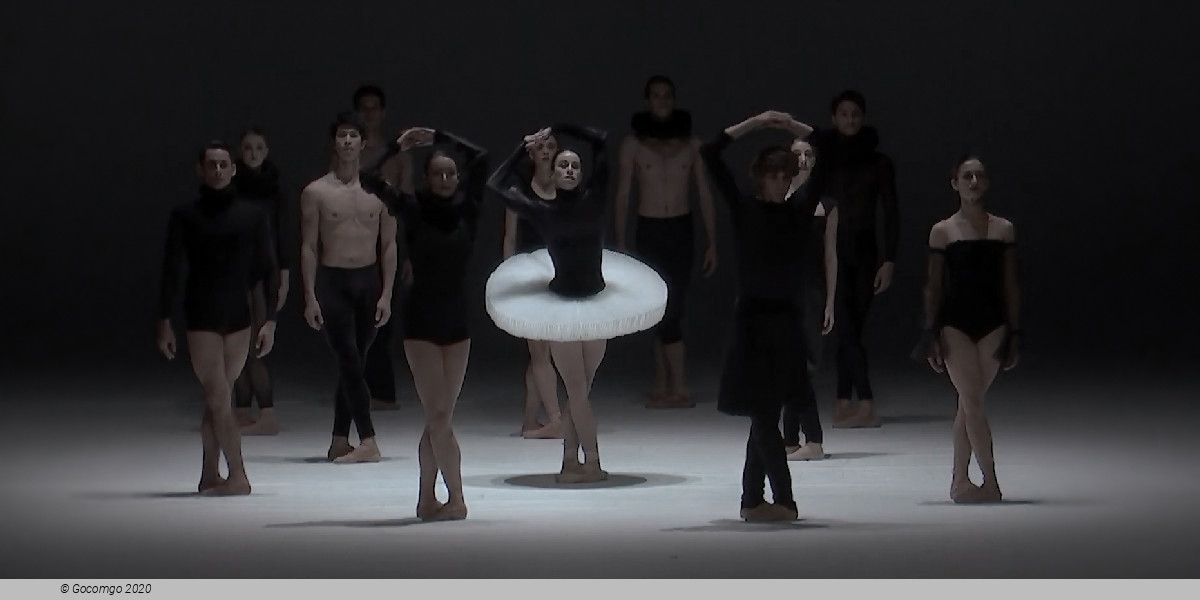Events372 results
About
Pyotr Ilyich Tchaikovsky was a Russian composer of the romantic period, whose works are among the most popular music in the classical repertoire. He was the first Russian composer whose music made a lasting impression internationally, bolstered by his appearances as a guest conductor in Europe and the United States. He was honored in 1884 by Emperor Alexander III, and awarded a lifetime pension.
Although musically precocious, Tchaikovsky was educated for a career as a civil servant. There was scant opportunity for a musical career in Russia at that time and no system of public music education. When an opportunity for such an education arose, he entered the nascent Saint Petersburg Conservatory, from which he graduated in 1865. The formal Western-oriented teaching he received there set him apart from composers of the contemporary nationalist movement embodied by the Russian composers of The Five, with whom his professional relationship was mixed. Tchaikovsky's training set him on a path to reconcile what he had learned with the native musical practices to which he had been exposed from childhood. From this reconciliation he forged a personal but unmistakably Russian style—a task that did not prove easy. The principles that governed melody, harmony and other fundamentals of Russian music ran completely counter to those that governed Western European music; this seemed to defeat the potential for using Russian music in large-scale Western composition or for forming a composite style, and it caused personal antipathies that dented Tchaikovsky's self-confidence. Russian culture exhibited a split personality, with its native and adopted elements having drifted apart increasingly since the time of Peter the Great. This resulted in uncertainty among the intelligentsia about the country's national identity—an ambiguity mirrored in Tchaikovsky's career.
Despite his many popular successes, Tchaikovsky's life was punctuated by personal crises and depression. Contributory factors included his early separation from his mother for boarding school followed by his mother's early death, the death of his close friend and colleague Nikolai Rubinstein, and the collapse of the one enduring relationship of his adult life, which was his 13-year association with the wealthy widow Nadezhda von Meck who was his patron even though they never actually met each other. His homosexuality, which he kept private, has traditionally also been considered a major factor, though some musicologists now downplay its importance. Tchaikovsky's sudden death at the age of 53 is generally ascribed to cholera; there is an ongoing debate as to whether cholera was indeed the cause of death, and whether his death was accidental or self-inflicted.
While his music has remained popular among audiences, critical opinions were initially mixed. Some Russians did not feel it was sufficiently representative of native musical values and expressed suspicion that Europeans accepted the music for its Western elements. In an apparent reinforcement of the latter claim, some Europeans lauded Tchaikovsky for offering music more substantive than base exoticism and said he transcended stereotypes of Russian classical music. Others dismissed Tchaikovsky's music as "lacking in elevated thought," according to longtime New York Times music critic Harold C. Schonberg, and derided its formal workings as deficient because they did not stringently follow Western principles.
Childhood
Pyotr Ilyich Tchaikovsky was born in Votkinsk, a small town in Vyatka Governorate (present-day Udmurtia) in the Russian Empire, into a family with a long line of military service. His father, Ilya Petrovich Tchaikovsky, had served as a lieutenant colonel and engineer in the Department of Mines, and would manage the Kamsko-Votkinsk Ironworks. His grandfather, Pyotr Fedorovich Tchaikovsky (né Petro Fedorovych Chaika), was born in the village of Mikolayivka, Poltava Gubernia, Russian Empire (present day Ukraine), and served first as a physician's assistant in the army and later as city governor of Glazov in Vyatka. His great-grandfather, a Ukrainian Cossack named Fyodor Chaika, distinguished himself under Peter the Great at the Battle of Poltava in 1709. Tchaikovsky's mother, Alexandra Andreyevna (née d'Assier), was the second of Ilya's three wives, 18 years her husband's junior and French on her father's side. Both Ilya and Alexandra were trained in the arts, including music—a necessity as a posting to a remote area of Russia also meant a need for entertainment, whether in private or at social gatherings. Of his six siblings, Tchaikovsky was close to his sister Alexandra and twin brothers Anatoly and Modest. Alexandra's marriage to Lev Davydov would produce seven children and lend Tchaikovsky the only real family life he would know as an adult, especially during his years of wandering. One of those children, Vladimir Davydov, whom the composer would nickname 'Bob', would become very close to him.
In 1844, the family hired Fanny Dürbach, a 22-year-old French governess. Four-and-a-half-year-old Tchaikovsky was initially thought too young to study alongside his older brother Nikolai and a niece of the family. His insistence convinced Dürbach otherwise. By the age of six, he had become fluent in French and German. Tchaikovsky also became attached to the young woman; her affection for him was reportedly a counter to his mother's coldness and emotional distance from him, though others assert that the mother doted on her son. Dürbach saved much of Tchaikovsky's work from this period, including his earliest known compositions, and became a source of several childhood anecdotes.
Tchaikovsky began piano lessons at age five. Precocious, within three years he had become as adept at reading sheet music as his teacher. His parents, initially supportive, hired a tutor, bought an orchestrion (a form of barrel organ that could imitate elaborate orchestral effects), and encouraged his piano study for both aesthetic and practical reasons. However, they decided in 1850 to send Tchaikovsky to the Imperial School of Jurisprudence in Saint Petersburg. They had both graduated from institutes in Saint Petersburg and the School of Jurisprudence, which mainly served the lesser nobility, and thought that this education would prepare Tchaikovsky for a career as a civil servant. Regardless of talent, the only musical careers available in Russia at that time—except for the affluent aristocracy—were as a teacher in an academy or as an instrumentalist in one of the Imperial Theaters. Both were considered on the lowest rank of the social ladder, with individuals in them enjoying no more rights than peasants. His father's income was also growing increasingly uncertain, so both parents may have wanted Tchaikovsky to become independent as soon as possible. As the minimum age for acceptance was 12 and Tchaikovsky was only 10 at the time, he was required to spend two years boarding at the Imperial School of Jurisprudence's preparatory school, 1,300 kilometres (800 mi) from his family. Once those two years had passed, Tchaikovsky transferred to the Imperial School of Jurisprudence to begin a seven-year course of studies.
Tchaikovsky's early separation from his mother caused an emotional trauma that lasted the rest of his life and was intensified by her death from cholera in 1854, when he was fourteen. The loss of his mother also prompted Tchaikovsky to make his first serious attempt at composition, a waltz in her memory. Tchaikovsky's father, who had also contracted cholera but recovered fully, sent him back to school immediately in the hope that classwork would occupy the boy's mind. Isolated, Tchaikovsky compensated with friendships with fellow students that became lifelong; these included Aleksey Apukhtin and Vladimir Gerard. Music, while not an official priority at school, also bridged the gap between Tchaikovsky and his peers. They regularly attended the opera and Tchaikovsky would improvise at the school's harmonium on themes he and his friends had sung during choir practice. "We were amused," Vladimir Gerard later remembered, "but not imbued with any expectations of his future glory". Tchaikovsky also continued his piano studies through Franz Becker, an instrument manufacturer who made occasional visits to the school; however, the results, according to musicologist David Brown, were "negligible".
In 1855, Tchaikovsky's father funded private lessons with Rudolph Kündinger and questioned him about a musical career for his son. While impressed with the boy's talent, Kündinger said he saw nothing to suggest a future composer or performer. He later admitted that his assessment was also based on his own negative experiences as a musician in Russia and his unwillingness for Tchaikovsky to be treated likewise. Tchaikovsky was told to finish his course and then try for a post in the Ministry of Justice.
Civil service; pursuing music
On 10 June 1859, the 19-year-old Tchaikovsky graduated as a titular counselor, a low rung on the civil service ladder. Appointed to the Ministry of Justice, he became a junior assistant within six months and a senior assistant two months after that. He remained a senior assistant for the rest of his three-year civil service career.
Meanwhile, the Russian Musical Society (RMS) was founded in 1859 by the Grand Duchess Elena Pavlovna (a German-born aunt of Tsar Alexander II) and her protégé, pianist and composer Anton Rubinstein. Previous tsars and the aristocracy had focused almost exclusively on importing European talent. The aim of the RMS was to fulfill Alexander II's wish to foster native talent. It hosted a regular season of public concerts (previously held only during the six weeks of Lent when the Imperial Theaters were closed) and provided basic professional training in music. In 1861, Tchaikovsky attended RMS classes in music theory taught by Nikolai Zaremba at the Mikhailovsky Palace (now the Russian Museum). These classes were a precursor to the Saint Petersburg Conservatory, which opened in 1862. Tchaikovsky enrolled at the Conservatory as part of its premiere class. He studied harmony and counterpoint with Zaremba and instrumentation and composition with Rubinstein.
The Conservatory benefited Tchaikovsky in two ways. It transformed him into a musical professional, with tools to help him thrive as a composer, and the in-depth exposure to European principles and musical forms gave him a sense that his art was not exclusively Russian or Western. This mindset became important in Tchaikovsky's reconciliation of Russian and European influences in his compositional style. He believed and attempted to show that both these aspects were "intertwined and mutually dependent". His efforts became both an inspiration and a starting point for other Russian composers to build their own individual styles.
Rubinstein was impressed by Tchaikovsky's musical talent on the whole and cited him as "a composer of genius" in his autobiography. He was less pleased with the more progressive tendencies of some of Tchaikovsky's student work. Nor did he change his opinion as Tchaikovsky's reputation grew. He and Zaremba clashed with Tchaikovsky when he submitted his First Symphony for performance by the RMS in Saint Petersburg. Rubinstein and Zaremba refused to consider the work unless substantial changes were made. Tchaikovsky complied but they still refused to perform the symphony. Tchaikovsky, distressed that he had been treated as though he were still their student, withdrew the symphony. It was given its first complete performance, minus the changes Rubinstein and Zaremba had requested, in Moscow in February 1868.
Once Tchaikovsky graduated in 1865, Rubinstein's brother Nikolai offered him the post of Professor of Music Theory at the soon-to-open Moscow Conservatory. While the salary for his professorship was only 50 rubles a month, the offer itself boosted Tchaikovsky's morale and he accepted the post eagerly. He was further heartened by news of the first public performance of one of his works, his Characteristic Dances, conducted by Johann Strauss II at a concert in Pavlovsk Park on 11 September 1865 (Tchaikovsky later included this work, re-titled, Dances of the Hay Maidens, in his opera The Voyevoda).
From 1867 to 1878, Tchaikovsky combined his professorial duties with music criticism while continuing to compose.[48] This activity exposed him to a range of contemporary music and afforded him the opportunity to travel abroad. In his reviews, he praised Beethoven, considered Brahms overrated and, despite his admiration, took Schumann to task for poor orchestration. He appreciated the staging of Wagner's Der Ring des Nibelungen at its inaugural performance in Bayreuth, Germany, but not the music, calling Das Rheingold "unlikely nonsense, through which, from time to time, sparkle unusually beautiful and astonishing details". A recurring theme he addressed was the poor state of Russian opera.
Relationship with The Five
In 1856, while Tchaikovsky was still at the School of Jurisprudence and Anton Rubinstein lobbied aristocrats to form the RMS, critic Vladimir Stasov and an 18-year-old pianist, Mily Balakirev, met and agreed upon a nationalist agenda for Russian music, one that would take the operas of Mikhail Glinka as a model and incorporate elements from folk music, reject traditional Western practices and use exotic harmonic devices such as the whole tone and octatonic scales. They saw Western-style conservatories as unnecessary and antipathetic to fostering native talent. Eventually, Balakirev, César Cui, Modest Mussorgsky, Nikolai Rimsky-Korsakov and Alexander Borodin became known as the moguchaya kuchka, translated into English as the Mighty Handful or The Five. Rubinstein criticized their emphasis on amateur efforts in musical composition; Balakirev and later Mussorgsky attacked Rubinstein for his musical conservatism and his belief in professional music training. Tchaikovsky and his fellow conservatory students were caught in the middle.
While ambivalent about much of The Five's music, Tchaikovsky remained on friendly terms with most of its members. In 1869, he and Balakirev worked together on what became Tchaikovsky's first recognized masterpiece, the fantasy-overture Romeo and Juliet, a work which The Five wholeheartedly embraced. The group also welcomed his Second Symphony, subtitled the Little Russian. Despite their support, Tchaikovsky made considerable efforts to ensure his musical independence from the group as well as from the conservative faction at the Saint Petersburg Conservatory.
Growing fame; budding opera composer
The infrequency of Tchaikovsky's musical successes, won with tremendous effort, exacerbated his lifelong sensitivity to criticism. Nikolai Rubinstein's private fits of rage critiquing his music, most famously attacking the First Piano Concerto, did not help matters. His popularity grew, however, as several first-rate artists became willing to perform his compositions. Hans von Bülow premiered the First Piano Concerto and championed other Tchaikovsky works both as pianist and conductor. Other artists included Adele Aus der Ohe, Max Erdmannsdörfer, Eduard Nápravník and Sergei Taneyev.
Another factor that helped Tchaikovsky's music become popular was a shift in attitude among Russian audiences. Whereas they had previously been satisfied with flashy virtuoso performances of technically demanding but musically lightweight compositions, they gradually began listening with increasing appreciation of the music itself. Tchaikovsky's works were performed frequently, with few delays between their composition and first performances; the publication from 1867 onward of his songs and great piano music for the home market also helped boost the composer's popularity.
During the late 1860s, Tchaikovsky began to compose operas. His first, The Voyevoda, based on a play by Alexander Ostrovsky, premiered in 1869. The composer became dissatisfied with it, however, and, having re-used parts of it in later works, destroyed the manuscript. Undina followed in 1870. Only excerpts were performed and it, too, was destroyed. Between these projects, Tchaikovsky started to compose an opera called Mandragora, to a libretto by Sergei Rachinskii; the only music he completed was a short chorus of Flowers and Insects.
The first Tchaikovsky opera to survive intact, The Oprichnik, premiered in 1874. During its composition, he lost Ostrovsky's part-finished libretto. Tchaikovsky, too embarrassed to ask for another copy, decided to write the libretto himself, modelling his dramatic technique on that of Eugène Scribe. Cui wrote a "characteristically savage press attack" on the opera. Mussorgsky, writing to Vladimir Stasov, disapproved of the opera as pandering to the public. Nevertheless, The Oprichnik continues to be performed from time to time in Russia.
The last of the early operas, Vakula the Smith (Op.14), was composed in the second half of 1874. The libretto, based on Gogol's Christmas Eve, was to have been set to music by Alexander Serov. With Serov's death, the libretto was opened to a competition with a guarantee that the winning entry would be premiered by the Imperial Mariinsky Theatre. Tchaikovsky was declared the winner, but at the 1876 premiere, the opera enjoyed only a lukewarm reception. After Tchaikovsky's death, Rimsky-Korsakov wrote the opera Christmas Eve, based on the same story.
Other works of this period include the Variations on a Rococo Theme for cello and orchestra, the Third and Fourth Symphonies, the ballet Swan Lake, and the opera Eugene Onegin.
Personal life
Discussion of Tchaikovsky's personal life, especially his sexuality, has perhaps been the most extensive of any composer in the 19th century and certainly of any Russian composer of his time. It has also at times caused considerable confusion, from Soviet efforts to expunge all references to same-sex attraction and portray him as a heterosexual, to efforts at armchair analysis by Western biographers. Biographers have generally agreed that Tchaikovsky was homosexual. He sought the company of other men in his circle for extended periods, "associating openly and establishing professional connections with them". His first love was reportedly Sergey Kireyev, a younger fellow student at the Imperial School of Jurisprudence. According to Modest Tchaikovsky, this was Pyotr Ilyich's "strongest, longest and purest love". The degree to which the composer might have felt comfortable with his sexual nature has, however, remained open to debate. It is still unknown whether Tchaikovsky, according to musicologist and biographer David Brown, "felt tainted within himself, defiled by something from which he finally realized he could never escape" or whether, according to Alexander Poznansky, he experienced "no unbearable guilt" over his sexual nature and "eventually came to see his sexual peculiarities as an insurmountable and even natural part of his personality ... without experiencing any serious psychological damage". Relevant portions of his brother Modest's autobiography, where he tells of the composer's sexual orientation, have been published, as have letters previously suppressed by Soviet censors in which Tchaikovsky openly writes of it. Such censorship has persisted in the current Russian government, resulting in many officials, including the current culture minister Vladimir Medinsky, to outright deny his homosexuality.
Tchaikovsky lived as a bachelor for most of his life. In 1868 he met Belgian soprano Désirée Artôt. They became infatuated with each other and were engaged to be married but due to Artôt's refusal to give up the stage or settle in Russia, the relationship ended. Tchaikovsky later claimed she was the only woman he ever loved. In 1877, at the age of 37, he wed a former student, Antonina Miliukova. The marriage was a disaster. Mismatched psychologically and sexually, the couple lived together for only two and a half months before Tchaikovsky left, overwrought emotionally and suffering from an acute writer's block. Tchaikovsky's family remained supportive of him during this crisis and throughout his life. He was also aided by Nadezhda von Meck, the widow of a railway magnate, who had begun contact with him not long before the marriage. As well as an important friend and emotional support, she became his patroness for the next 13 years, which allowed him to focus exclusively on composition. Tchaikovsky's marital debacle may have forced him to face the full truth about his sexuality; he never blamed Antonina for the failure of their marriage.
Years of wandering
Tchaikovsky remained abroad for a year after the disintegration of his marriage. During this time, he completed Eugene Onegin, orchestrated his Fourth Symphony, and composed the Violin Concerto. He returned briefly to the Moscow Conservatory in the autumn of 1879. For the next few years, assured of a regular income from von Meck, he traveled incessantly throughout Europe and rural Russia, mainly alone, and avoided social contact whenever possible. During this time, Tchaikovsky's foreign reputation grew and a positive reassessment of his music also took place in Russia, thanks in part to Russian novelist Fyodor Dostoyevsky's call for "universal unity" with the West at the unveiling of the Pushkin Monument in Moscow in 1880. Before Dostoyevsky's speech, Tchaikovsky's music had been considered "overly dependent on the West". As Dostoyevsky's message spread throughout Russia, this stigma toward Tchaikovsky's music evaporated. An unprecedented acclaim for him even drew a cult following among the young intelligentsia of Saint Petersburg, including Alexandre Benois, Léon Bakst and Sergei Diaghilev.
Two musical works from this period stand out. With the Cathedral of Christ the Saviour nearing completion in Moscow in 1880, the 25th anniversary of the coronation of Alexander II in 1881, and the 1882 Moscow Arts and Industry Exhibition in the planning stage, Nikolai Rubinstein suggested that Tchaikovsky compose a grand commemorative piece. Tchaikovsky agreed and finished it within six weeks. He wrote to Nadezhda von Meck that this piece, the 1812 Overture, would be "very loud and noisy, but I wrote it with no warm feeling of love, and therefore there will probably be no artistic merits in it". He also warned conductor Eduard Nápravník that "I shan't be at all surprised and offended if you find that it is in a style unsuitable for symphony concerts". Nevertheless, the overture became, for many, "the piece by Tchaikovsky they know best"., particularly well-known for the use of cannon in the scores.
On 23 March 1881, Nikolai Rubinstein died in Paris. That December, Tchaikovsky started work on his Piano Trio in A minor, "dedicated to the memory of a great artist". First performed privately at the Moscow Conservatory on the first anniversary of Rubinstein's death, the piece became extremely popular during the composer's lifetime; in November 1893, it would become Tchaikovsky's own elegy at memorial concerts in Moscow and St. Petersburg.
Return to Russia
In 1884, Tchaikovsky began to shed his unsociability and restlessness. That March, Tsar Alexander III conferred upon him the Order of St. Vladimir (fourth class), which included a title of hereditary nobility and a personal audience with the Tsar. This was seen as a seal of official approval which advanced Tchaikovsky's social standing[96] and might have been cemented in the composer's mind by the success of his Orchestral Suite No. 3 at its January 1885 premiere in Saint Petersburg. In 1885, Alexander III requested a new production of Eugene Onegin at the Bolshoi Kamenny Theatre in Saint Petersburg. By having the opera staged there and not at the Mariinsky Theatre, he served notice that Tchaikovsky's music was replacing Italian opera as the official imperial art. In addition, by virtue of Ivan Vsevolozhsky, Director of the Imperial Theaters and a patron of the composer, Tchaikovsky was awarded a lifetime annual pension of 3,000 rubles from the Tsar. This made him the premier court composer, in practice if not in actual title.
A blue two-story house with white trim and many windows, surrounded by birch trees.
Tchaikovsky's last home, in Klin, now the Tchaikovsky Museum
Despite Tchaikovsky's disdain for public life, he now participated in it as part of his increasing celebrity and out of a duty he felt to promote Russian music. He helped support his former pupil Sergei Taneyev, who was now director of Moscow Conservatory, by attending student examinations and negotiating the sometimes sensitive relations among various members of the staff. He served as director of the Moscow branch of the Russian Musical Society during the 1889–1890 season. In this post, he invited many international celebrities to conduct, including Johannes Brahms, Antonín Dvořák and Jules Massenet.
During this period, Tchaikovsky also began promoting Russian music as a conductor, In January 1887, he substituted, on short notice, at the Bolshoi Theater in Moscow for performances of his opera Cherevichki. Within a year, he was in considerable demand throughout Europe and Russia. These appearances helped him overcome life-long stage fright and boosted his self-assurance.In 1888, Tchaikovsky led the premiere of his Fifth Symphony in Saint Petersburg, repeating the work a week later with the first performance of his tone poem Hamlet. Although critics proved hostile, with César Cui calling the symphony "routine" and "meretricious", both works were received with extreme enthusiasm by audiences and Tchaikovsky, undeterred, continued to conduct the symphony in Russia and Europe. Conducting brought him to the United States in 1891, where he led the New York Music Society's orchestra in his Festival Coronation March at the inaugural concert of Carnegie Hall.
Belyayev circle and growing reputation
In November 1887, Tchaikovsky arrived at Saint Petersburg in time to hear several of the Russian Symphony Concerts, devoted exclusively to the music of Russian composers. One included the first complete performance of his revised First Symphony; another featured the final version of Third Symphony of Nikolai Rimsky-Korsakov, with whose circle Tchaikovsky was already in touch. Rimsky-Korsakov, with Alexander Glazunov, Anatoly Lyadov and several other nationalistically minded composers and musicians, had formed a group known as the Belyayev circle, named after a merchant and amateur musician who became an influential music patron and publisher. Tchaikovsky spent much time in this circle, becoming far more at ease with them than he had been with the 'Five' and increasingly confident in showcasing his music alongside theirs. This relationship lasted until Tchaikovsky's death.
In 1892, Tchaikovsky was voted a member of the Académie des Beaux-Arts in France, only the second Russian subject to be so honored (the first was sculptor Mark Antokolski). The following year, the University of Cambridge in England awarded Tchaikovsky an honorary Doctor of Music degree.
Death
See also: Death of Pyotr Ilyich Tchaikovsky and Symphony No. 6 (Tchaikovsky)
On 16/28 October 1893, Tchaikovsky conducted the premiere of his Sixth Symphony, the Pathétique in Saint Petersburg. Nine days later, Tchaikovsky died there, aged 53. He was interred in Tikhvin Cemetery at the Alexander Nevsky Monastery, near the graves of fellow-composers Alexander Borodin, Mikhail Glinka, and Modest Mussorgsky; later, Rimsky-Korsakov and Balakirev were also buried nearby.
While Tchaikovsky's death has traditionally been attributed to cholera from drinking unboiled water at a local restaurant, as one story accounts, many writers have theorized that his death was a suicide. Opinion has been summarized as follows: "The polemics over [Tchaikovsky's] death have reached an impasse ... Rumors attached to the famous die hard ... As for illness, problems of evidence offer little hope of satisfactory resolution: the state of diagnosis; the confusion of witnesses; disregard of long-term effects of smoking and alcohol. We do not know how Tchaikovsky died. We may never find out ...".


